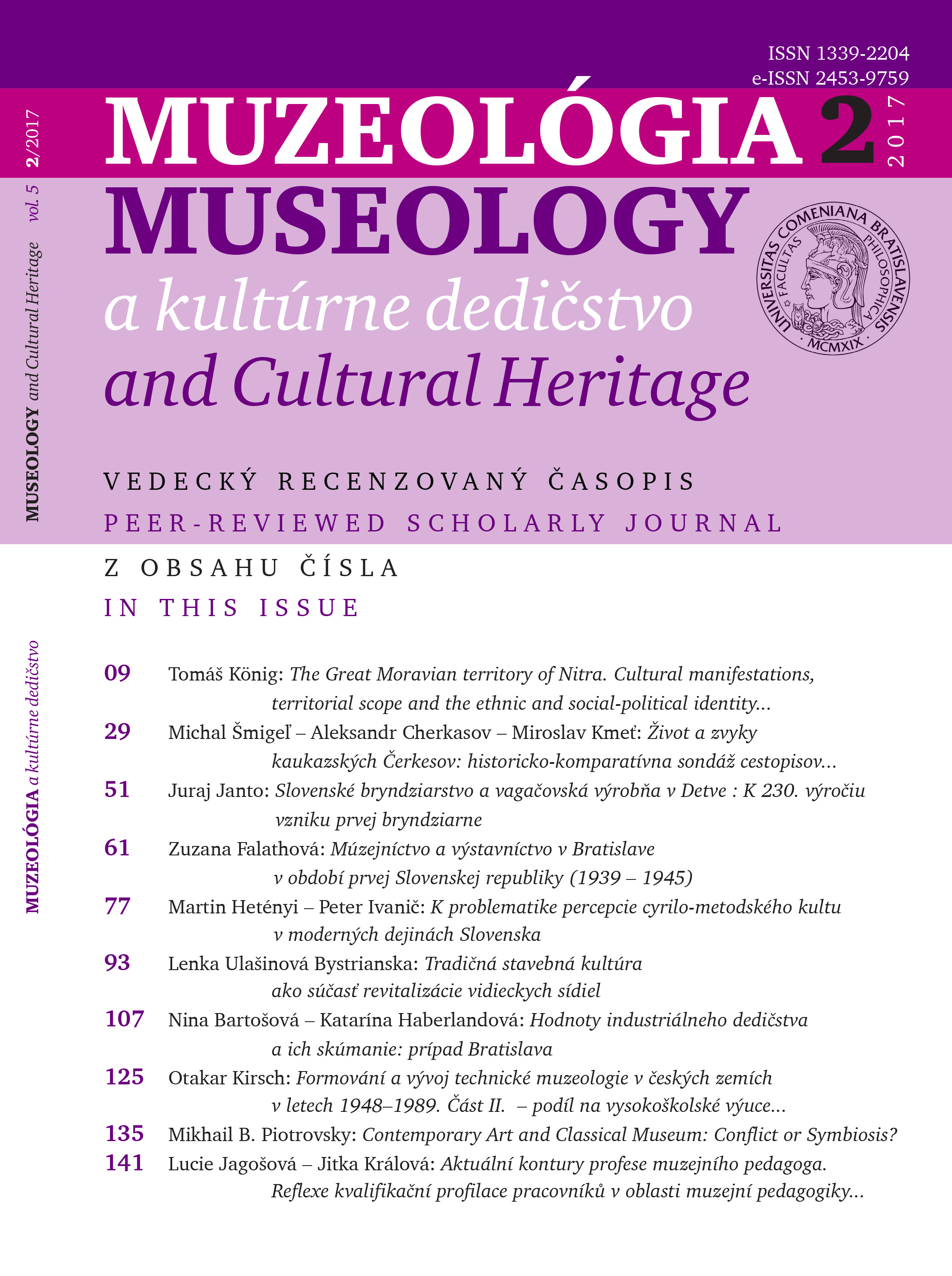K PROBLEMATIKE PERCEPCIE CYRILO-METODSKÉHO KULTU V MODERNÝCH DEJINÁCH SLOVENSKA
On problems with the perception of the Cyrillo-Methodian cult in the modern history of Slovakia
Author(s): Peter Ivanič, Martin HetényiSubject(s): Politics / Political Sciences, History, Social Sciences, Geography, Regional studies, Theology and Religion
Published by: Univerzita Komenského v Bratislave, Filozofická fakulta
Keywords: CYRILLO-METHODIAN TRADITION; SLOVAK; NATIONAL REVIVAL
Summary/Abstract: The Byzantine mission led by st Constantine-Cyril and his brother st Methodius, which reached Great Moravia in 863, had several dimensions. The central theme of this work is to look at how the message of Great Moravia and the Cyrillo-Methodian cult have been spread, mainly in the modern history of Slovakia. After establishing the Hungarian Kingdom, the relations of the local church representatives towards the Methodius‘s followers weakened significantly. By the end of the 10th century, there was again pressure aimed at eradicating the residues of their activities and influence. The Cyrillo-Methodian literary tradition came to a standstill and the application of liturgic habits introduced by the holy brothers was disrupted for a long period of time. It is commonly known that the whole era of the Slovak national revival was fueled by the development of the Cyrillo-Methodian tradition. The cultural value cultivation of the Great Moravian figures in the religious, national, and cultural life of the Slovaks started already during the national revival and flourished in the 20th century. The intensity of spreading the cult of the Thessalonian saints has been different in various Slovak regions. Following the development of the Great Moravian era interpretations that were subject to political pressure, as well as to the limited actual knowledge, gives us the answers regarding the future orientation of the research.
Journal: Muzeológia a kultúrne dedičstvo
- Issue Year: 5/2017
- Issue No: 2
- Page Range: 77-91
- Page Count: 15
- Language: Slovak

